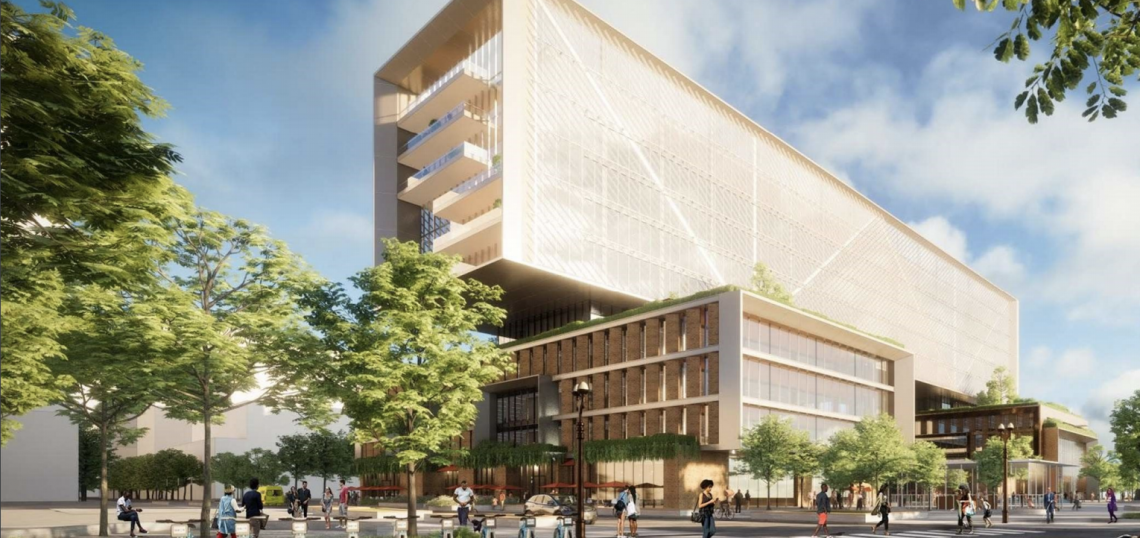The $3.8 billion multiphase Bronzeville Lakefront development is one step closer to bringing a vibrant mixed-use community to the former Michael Reese hospital site on the city's Near South Side.
On Tuesday, the Chicago Community Development Commission approved the sale of 48 acres of city-owned land to GRIT LLC, a team of developers led by Farpoint. The site sits just west of Lake Shore Drive and the Metra Electric tracks, roughly between McCormick Place to the north and 31st Street to the south.
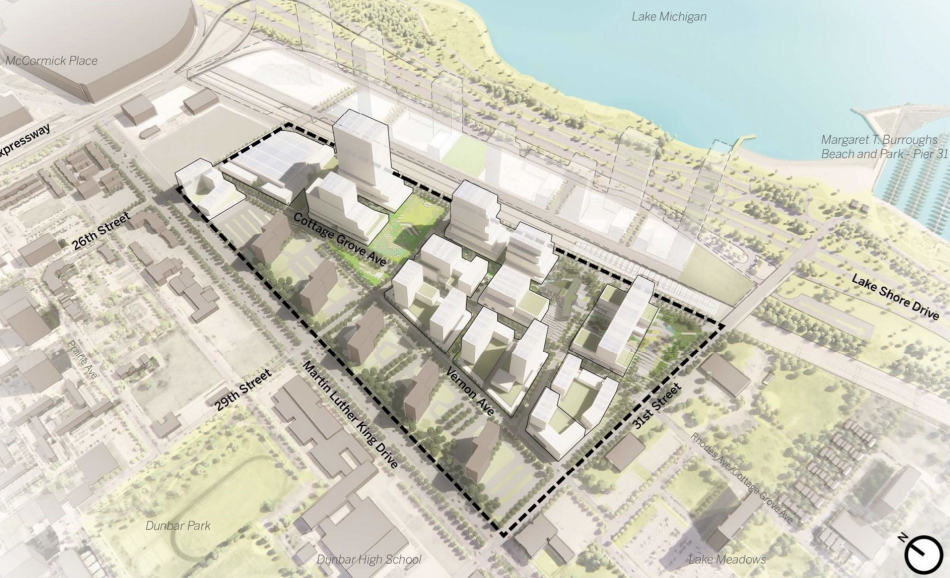 An aerial rendering of the completed Bronzeville Lakefront development.Chicago Department of Planning Development
An aerial rendering of the completed Bronzeville Lakefront development.Chicago Department of Planning Development
The sale agreement, which still needs the final support of the Chicago City Council, estimates the price of the entire site at $96.9 million. GRIT will make a $20 million downpayment for the option to purchase the site over a 14-year period. The land will be sold to the development team on a parcel-by-parcel basis.
The city originally purchased the former Michael Reese property in 2009 for $91 million to serve as the Olympic village for Chicago's unsuccessful bid for the 2016 games. The site has sat vacant since the hospital complex was demolished in 2009. The city has paid roughly $13 million each year to pay down its debt on the property, according to the Daily Line. The city selected the GRIT team to redevelop the property in 2017.
In February of this year, the Chicago Plan Commission approved GRIT's Planned Development zoning application for the site. Master-planned by architecture firm Skidmore, Owings & Merrill, the proposal calls for 8 million square feet of development, over 10 acres of parkland and open space, and up to 6,786 residential units with 20 percent set aside as on-site affordable housing.
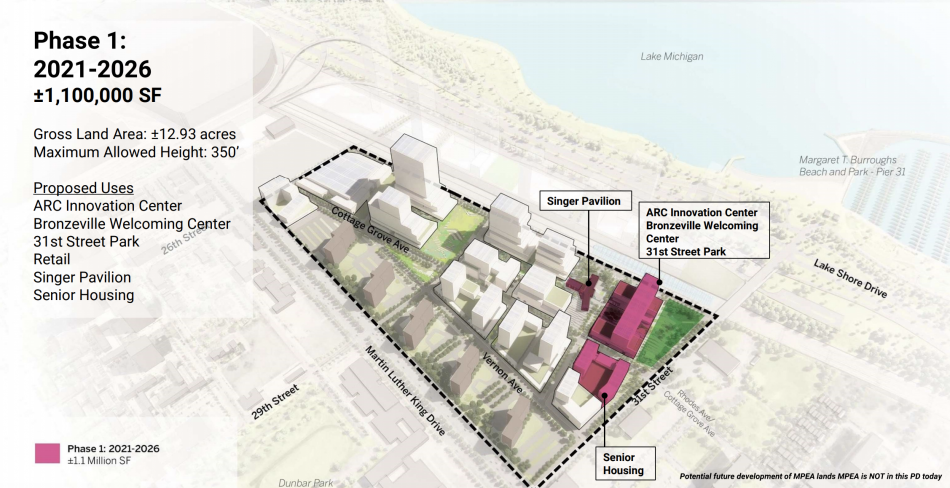 Chicago Department of Planning Development
Chicago Department of Planning Development
The estimated $600 million first phase will occupy the southern edge of the site, closest to 31st Street. It features 1.1 million square feet of development including a Bronzeville "welcome center" celebrating the community's history as well as the ARC Innovation Center: a life sciences research complex anchored by Isreal-based Sheba Medical Center.
Phase one also includes new retail, a park, roughly 300 units of mixed-income senior housing, and the adaptive reuse of the Singer Pavillion (the sole remaining building from the old hospital that wasn't demolished). The next phase would occupy the land to the north and includes a mix of housing, hospitality offerings, a data center, and life science office and lab space.
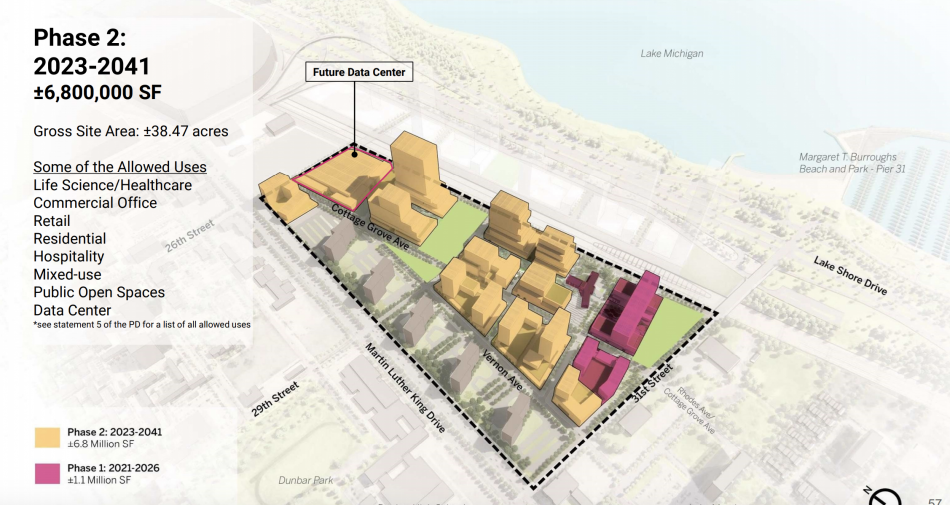 Chicago Department of Planning Development
Chicago Department of Planning Development
A potential future phase of the megadevelopment would also include building multiple high-rises on the truck marshalling yards located east of the train tracks. That property currently belongs to the Metropolitan Pier and Exposition Authority and is not within the boundaries of the current Planned Development.
Redeveloping the former Reese site is not without its own set of challenges that will need to be addressed along the way. The city estimates that roughly $31 million of environmental remediation work will need to be completed along with $60 million in taxpayer money to build new roads and open space improvements.
Although the land is situated within the Bronzeville TIF district, city officials aren't planning on tapping TIF money to pay for infrastructure and will instead seek funding from the federal government or the city's larger infrastructure plan.
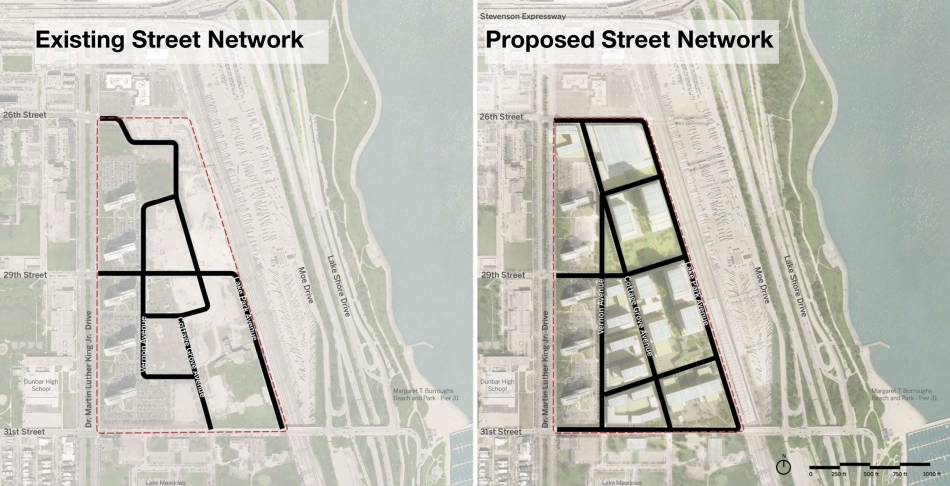 Chicago Department of Planning Development
Chicago Department of Planning Development
"We expect to hopefully get through City Council by the middle of the summer, and once we have all of our approvals we can start moving dirt in earnest," said Scott Goodman of Farpoint. "From an infrastructure standpoint, [construction] should happen before the end of the year."
The GRIT team will simultaneously pursue infrastructure work and the development's first phase. They expect to finish the first building (the ARC Center) by late 2023 or early 2024 and complete the remainder of phase one by 2026. The entire Bronzeville Lakefront development will take 10 to 20 years to finish.
"This development has been going on for some time, we've advocated for development that is mixed-use, sustainable and includes residential, retail, commercial, and open space—a vibrant community that anyone would want in their neighborhood," said Ald. Sophia King (4th) at Tuesday's virtual meeting. "I'm proud to say that we're on our way."
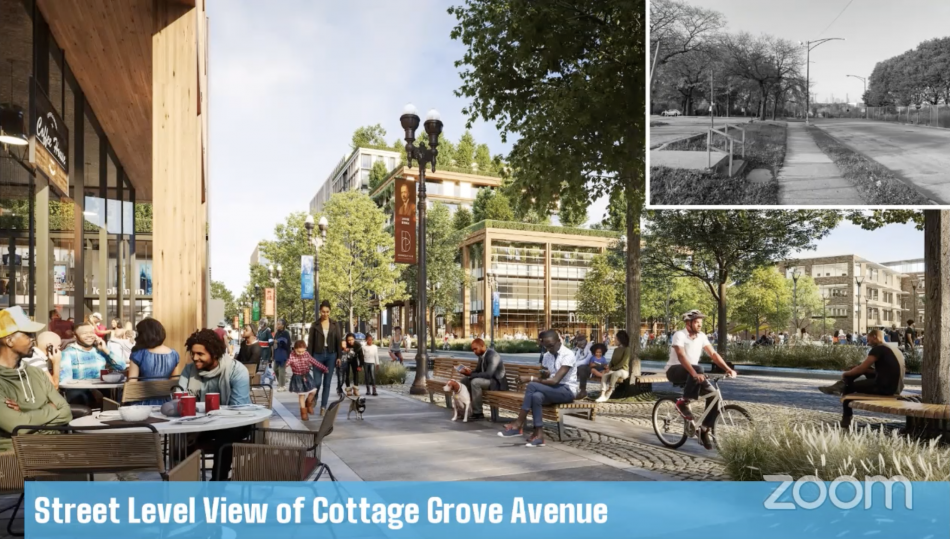 Chicago Department of Planning Development
Chicago Department of Planning Development





